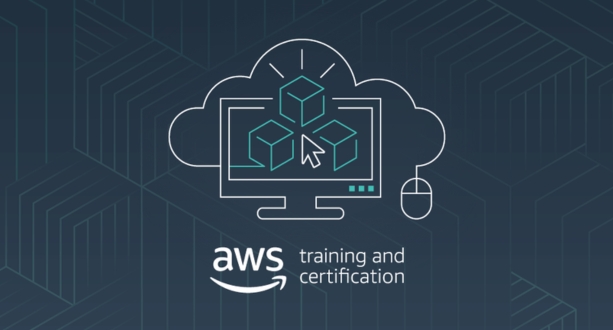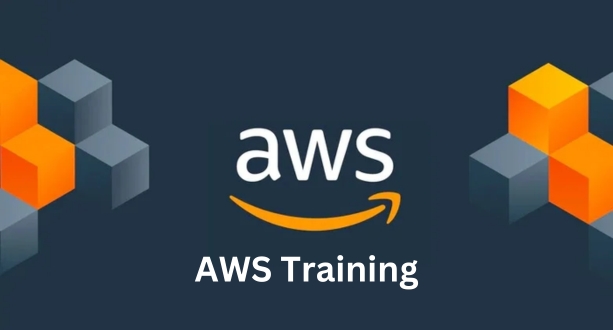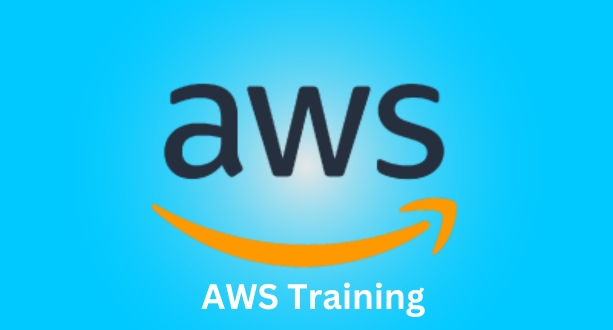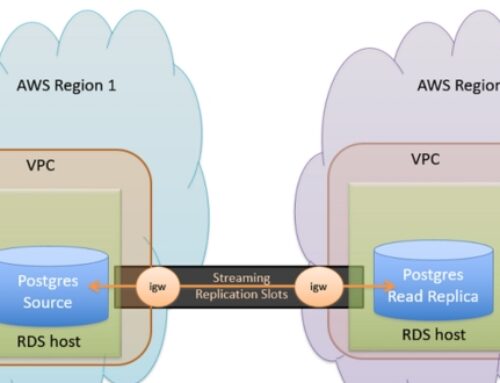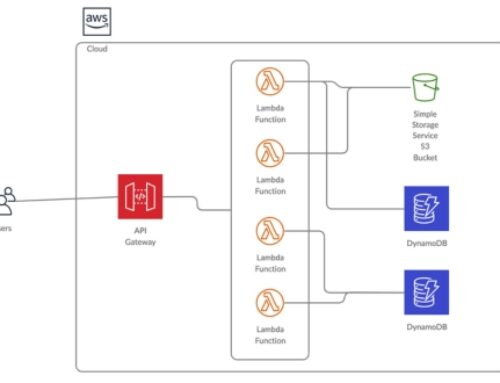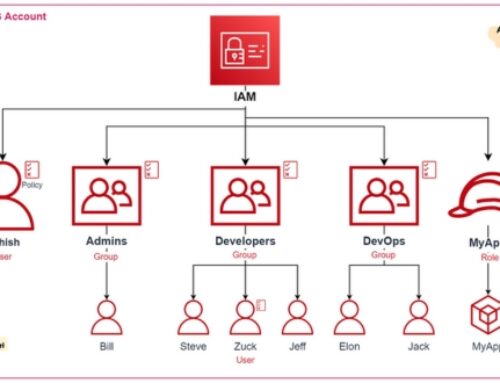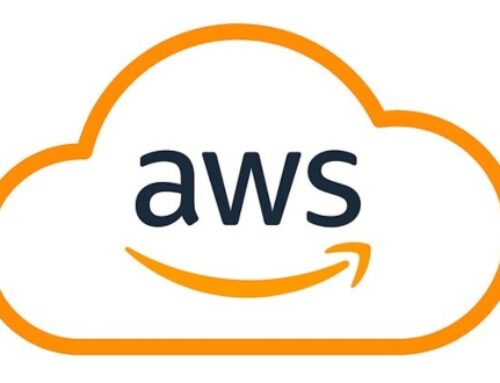Introduction to AWS Training and Workshops
Amazon Web Services (AWS) training provides individuals and organizations with the necessary skills and knowledge to effectively utilize the services offered by AWS, one of the leading cloud computing platforms in the world. This training covers a wide range of topics, from basic concepts to advanced techniques, allowing participants to gain expertise in utilizing AWS for various purposes.
Overview of AWS (Amazon Web Services):
AWS is a comprehensive cloud computing platform provided by Amazon.com. It offers a wide range of services, including computing power, storage solutions, networking capabilities, machine learning, database management, and more. These services are designed to help businesses scale and grow without the need for large upfront investments in hardware and infrastructure. Understanding the breadth and depth of AWS services is essential for leveraging its full potential.
Importance of Cloud Computing Skills:
Cloud computing has become an integral part of modern IT infrastructure for businesses of all sizes. By migrating to the cloud, organizations can benefit from increased flexibility, scalability, cost-effectiveness, and agility. As a result, there is a growing demand for professionals with cloud computing skills, particularly expertise in platforms like AWS. Individuals who are proficient in AWS can contribute significantly to their organizations’ success by optimizing resources, improving efficiency, and driving innovation.
Need for Comprehensive Training Programs:
Comprehensive training programs are essential for individuals and organizations looking to maximize the benefits of AWS. These programs provide participants with a structured curriculum that covers fundamental concepts, best practices, hands-on exercises, and real-world scenarios. By enrolling in a comprehensive training program, participants can gain a deep understanding of AWS services, develop practical skills, and prepare for AWS certifications. Additionally, these programs often offer support resources, such as instructor-led sessions, online forums, and practice exams, to ensure successful learning outcomes.
Core Components of AWS Training
Foundational Knowledge: Understanding Cloud Concepts:
This aspect of the training focuses on providing participants with a solid understanding of fundamental cloud computing concepts. This includes topics such as the basics of cloud computing, advantages of cloud services, different cloud deployment models (public, private, hybrid), essential terminology (e.g., virtualization, elasticity, scalability), and key considerations for cloud adoption (security, compliance, cost management).
AWS Services and Solutions: In-depth Exploration:
This component delves deeper into the vast array of AWS services and solutions available. Participants learn about the core services provided by AWS across various categories such as computing, storage, databases, networking, machine learning, analytics, security, and more. They gain insights into the functionalities, features, use cases, and best practices associated with each service. Additionally, participants explore how these services can be integrated to design and deploy scalable, resilient, and cost-effective cloud solutions.
Hands-on Labs and Practical Exercises:
Practical application is crucial for reinforcing learning and gaining proficiency. Hands-on labs and practical exercises provide participants with the opportunity to apply theoretical knowledge to real-world scenarios. Through guided exercises and simulations, participants get hands-on experience with AWS services and tools. They learn how to navigate the AWS Management Console, provision resources, configure services, troubleshoot common issues, and optimize performance. These practical sessions allow participants
Specialized Training Tracks
Developer Track: Building and Deploying Applications:
- This track focuses on equipping individuals with the skills needed to develop and deploy applications on the Amazon Web Services (AWS) platform.
- Key areas of learning may include programming languages commonly used for AWS development such as Python, Java, or Node.js, as well as frameworks like AWS SDKs.
- Participants might learn about various AWS services relevant to application development, such as AWS Lambda for serverless computing, Amazon EC2 for virtual server hosting, Amazon S3 for storage, and AWS Elastic Beanstalk for application deployment and management.
- Emphasis is placed on best practices for building scalable, reliable, and secure applications in the cloud, including topics such as containerization with Docker and orchestration with Kubernetes or AWS ECS (Elastic Container Service).
- Deployment methodologies and tools such as AWS CodePipeline, AWS CodeBuild, and AWS CodeDeploy may also be covered, along with techniques for continuous integration and continuous deployment (CI/CD) pipelines.
Solutions Architect Track: Designing Scalable Architectures:
- This track is designed for individuals interested in designing and architecting scalable, highly available, and cost-efficient solutions on AWS.
- Participants learn about architectural principles and best practices for designing cloud-native applications and infrastructure.
- Topics may include understanding AWS global infrastructure, designing fault-tolerant and resilient architectures using services like AWS Auto Scaling, Elastic Load Balancing, and Amazon Route 53 for DNS routing.
- Participants may also learn about AWS networking concepts, security best practices, and how to optimize performance and costs within AWS environments.
- Hands-on labs and case studies may be utilized to provide practical experience in designing and implementing scalable architectures for various use cases.
SysOps Administrator Track: Managing and Operating AWS Infrastructure:
- This track is tailored for individuals responsible for managing, operating, and maintaining AWS infrastructure and applications within an organization.
- Participants learn about AWS services related to infrastructure management and operations, such as Amazon EC2 for virtual server provisioning, Amazon RDS for database management, Amazon VPC for networking, and AWS CloudFormation for infrastructure as code.
- Key areas of focus include monitoring and logging with AWS CloudWatch, implementing security measures with AWS Identity and Access Management (IAM) and AWS Key Management Service (KMS), and automating tasks using AWS Systems Manager.
- Concepts related to high availability, disaster recovery, and backup strategies on AWS may also be covered, along with troubleshooting common issues and optimizing performance.
- Practical exercises and simulations may be employed to reinforce skills in managing and operating AWS infrastructure effectively.
Benefits of AWS Training and Workshops
Career Advancement Opportunities:
Acquiring AWS skills through training and workshops can open up new career opportunities. With the increasing demand for cloud computing professionals, having AWS certifications and expertise can significantly enhance your career prospects. Whether you’re an IT professional, developer, data scientist, or business analyst, AWS skills are highly valued across various industries.
Enhanced Job Marketability:
In today’s competitive job market, possessing AWS certifications and expertise can make you stand out to employers. Employers often look for candidates with practical experience and certifications in AWS to fill roles such as cloud architect, cloud developer, cloud engineer, and solutions architect. By investing in AWS training, you can improve your marketability and increase your chances of landing lucrative job opportunities.
Increased Organizational Efficiency:
Organizations that invest in AWS training for their employees can improve operational efficiency and effectiveness. With a skilled workforce proficient in AWS technologies, companies can streamline their processes, innovate faster, and deliver better results. AWS training empowers employees to leverage cloud-based solutions to optimize workflows, automate tasks, and drive business growth.
Cost Savings through Cloud Optimization:
AWS training helps organizations optimize their cloud infrastructure, leading to cost savings and improved ROI (Return on Investment). By understanding how to properly configure and manage AWS services, businesses can avoid unnecessary expenses, optimize resource utilization, and scale their infrastructure efficiently. Additionally, trained employees can identify opportunities to leverage cost-effective cloud solutions and adopt best practices for cost management.
AWS training and workshops provide individuals with valuable skills for career advancement and enhance their job marketability. For organizations, investing in AWS training can lead to increased efficiency, cost savings, and a competitive edge in the market. Whether you’re an individual looking to boost your career or a company striving for digital transformation, AWS training offers numerous benefits that can drive success in the cloud computing era.
Customized Training for Enterprises
Customized Training for Enterprises” refers to the development and delivery of training programs specifically designed to meet the unique needs and goals of a particular business or organization. Instead of using generic, off-the-shelf training materials, customized training programs are tailored to address the specific challenges, objectives, and skill gaps within an enterprise.
Key features of customized training for enterprises include:
Tailored Programs for Corporate Needs:
These programs are created after a thorough assessment of the organization’s requirements. They are designed to align with the strategic objectives and operational challenges of the enterprise. This may involve identifying specific skill gaps among employees, addressing compliance requirements, or enhancing competencies relevant to the industry.
On-site Training and Virtual Learning Options:
Enterprises may opt for on-site training sessions conducted at their facilities to provide convenience and minimize disruption to daily operations. Alternatively, virtual learning options such as online courses, webinars, or virtual classrooms may be utilized, especially in cases where employees are geographically dispersed or remote work is prevalent.
Enterprise Support and Guidance:
Customized training providers typically offer ongoing support and guidance to ensure the success of the program. This may include assistance with program implementation, monitoring progress, and making adjustments as needed. Additionally, trainers may provide coaching and mentorship to help employees apply their newly acquired skills in real-world scenarios.
Continuous Learning and Skill Development:
Technology is constantly evolving, and cloud computing is no exception. Staying updated with the latest advancements, tools, and best practices is essential for professionals working in cloud technology.
Continuous learning involves actively seeking out new information, exploring emerging trends, and acquiring new skills to remain competitive in the job market.
Skill development may involve mastering specific cloud platforms like Amazon Web Services (AWS), Microsoft Azure, or Google Cloud Platform, as well as learning programming languages, automation tools, and cloud architecture design principles.
Importance of Staying Updated in Cloud Technology:
- Cloud technology is revolutionizing the way businesses operate, offering scalability, flexibility, and cost-effectiveness. Staying updated allows professionals to leverage the latest features and functionalities offered by cloud providers to optimize their solutions and drive innovation.
- Rapid advancements in cloud security, data management, artificial intelligence (AI), and machine learning (ML) require professionals to continuously educate themselves to effectively address new challenges and opportunities.
- Staying updated also enhances job performance, increases job satisfaction, and opens up new career opportunities in the dynamic field of cloud technology.
Ongoing Training and Certification Renewal:
- Cloud providers like AWS offer a variety of training programs, certifications, and learning resources to help professionals enhance their skills and knowledge.
- Obtaining certifications such as AWS Certified Solutions Architect, AWS Certified Developer, or AWS Certified SysOps Administrator demonstrates expertise and proficiency in specific areas of AWS services and solutions.
- Renewing certifications periodically through continuing education or re-certification exams ensures that professionals stay current with the latest developments in cloud technology and maintain the relevance of their credentials in the job market.
Career Path Progression in the AWS Ecosystem:
- AWS offers a wide range of career opportunities for professionals at various skill levels, including entry-level roles like cloud support associate, mid-level roles like cloud architect or cloud developer, and senior-level roles like cloud solutions architect or cloud DevOps engineer.
- Career progression in the AWS ecosystem often involves gaining hands-on experience with AWS services, earning relevant certifications, and continually updating skills to meet evolving industry demands.
- Professionals can also explore specialized roles in areas such as cloud security, cloud migration, big data analytics, or IoT (Internet of Things) within the AWS ecosystem, depending on their interests and career goals.
Training Partnerships and Resources
AWS Training Partners: Authorized Instructors:
- AWS Training Partners are organizations that have been authorized by AWS to deliver training programs and courses on AWS technologies.
- These partners often employ instructors who are certified by AWS and have extensive expertise in various AWS services and solutions.
- Training programs offered by AWS Training Partners may include classroom-based training, virtual instructor-led training (VILT), workshops, bootcamps, and customized training solutions tailored to specific organizational needs.
- Participants in these training programs typically receive hands-on experience through labs and exercises, allowing them to gain practical skills in working with AWS.
Online Learning Platforms:
- AWS offers its own online learning platform called AWS Training and Certification, which provides a wide range of resources for individuals looking to learn about AWS.
- The platform offers digital courses, tutorials, whitepapers, documentation, and other educational materials covering various AWS services, architectures, best practices, and use cases.
- Learners can access these resources at their own pace, making it convenient for individuals with busy schedules or those who prefer self-paced learning.
- AWS Training and Certification also offers certification exams for validating expertise in different areas of AWS, such as cloud architecture, development, operations, security, and machine learning.
Community Support and Forums:
- Community support and forums play a crucial role in the learning process by providing a platform for individuals to connect with peers, share knowledge, ask questions, and seek assistance.
- AWS maintains various online forums and discussion boards where users can interact with AWS experts, solution architects, and other community members.
- These forums cover a wide range of topics related to AWS services, troubleshooting, best practices, and emerging trends.
- Engaging with the AWS community allows learners to gain insights from real-world experiences, collaborate on projects, and stay updated on the latest developments in the AWS ecosystem.
Training partnerships and resources offered by AWS and its authorized partners enable individuals and organizations to build and enhance their skills in leveraging AWS cloud technologies effectively. Whether through instructor-led training, online learning platforms, or community support, these resources empower learners to succeed in their AWS-related endeavors.
Continuous Learning and Skill Development
Importance of Staying Updated in Cloud Technology:
In-Depth Understanding of Cloud Services:
Staying updated in cloud technology ensures professionals have an in-depth understanding of the latest cloud services offered by platforms like AWS. This knowledge allows them to recommend and implement the most suitable services for specific business needs. With AWS constantly expanding its portfolio, professionals need to stay abreast of new offerings, such as machine learning services, serverless computing, and advanced analytics tools. This understanding empowers professionals to architect scalable and cost-effective solutions by leveraging the full spectrum of available services.
Optimizing Cost Efficiency:
Cloud cost management is a critical aspect of cloud technology, and staying updated helps professionals optimize cost efficiency. New features and pricing models are regularly introduced in cloud platforms, providing opportunities to reduce costs or enhance performance. Professionals who stay informed about changes in pricing structures, reserved instances, and spot instances can implement strategies to minimize expenses while maximizing resource utilization. This not only benefits the organization but also showcases the expertise of professionals in managing cloud costs effectively.
Enhancing Security Measures:
Security is a top priority in cloud computing, and staying updated is crucial to understanding the latest security threats, vulnerabilities, and best practices. Cloud service providers regularly release security updates and features to address emerging risks. Professionals who stay informed about these updates can implement robust security measures, ensuring the confidentiality, integrity, and availability of data and applications. This knowledge is essential in designing secure architectures, implementing access controls, and responding to evolving cybersecurity challenges.
Adapting to Regulatory Changes:
Cloud technology is subject to various regulations and compliance standards, and these requirements can change over time. Staying updated helps professionals stay compliant with industry-specific regulations and standards, ensuring that cloud solutions meet legal and regulatory obligations. For example, in healthcare, professionals need to be aware of updates to Health Insurance Portability and Accountability Act (HIPAA) regulations. Being well-informed about regulatory changes allows professionals to implement the necessary controls and security measures to maintain compliance.
Embracing DevOps and Automation:
The DevOps culture, emphasizing collaboration between development and operations teams, is integral to cloud technology. Staying updated in cloud technology involves understanding the latest trends in DevOps practices, continuous integration, and continuous delivery (CI/CD). Automation plays a significant role in achieving agility and efficiency in cloud environments. Professionals who are well-versed in automation tools, infrastructure as code (IaC), and CI/CD pipelines can streamline development workflows, improve deployment speed, and enhance overall system reliability.
Preparing for Emerging Technologies:
Cloud technology is a catalyst for emerging technologies such as artificial intelligence (AI), machine learning (ML), and the Internet of Things (IoT). Staying updated allows professionals to explore and incorporate these technologies into their cloud solutions. For instance, AWS offers a range of AI and ML services that can be leveraged for tasks such as image recognition, natural language processing, and predictive analytics. Being knowledgeable about these technologies positions professionals to innovate and address evolving business requirements.
Networking and Community Involvement:
Staying updated in cloud technology involves active participation in the community. Networking with peers, attending conferences, and engaging in online forums allow professionals to exchange knowledge, share experiences, and stay informed about industry trends. Community involvement provides opportunities to learn from real-world scenarios, gain insights from experts, and collaborate on solving common challenges. Being part of the cloud technology community enhances professional development and fosters a supportive network.
Innovating and Driving Business Value:
Staying updated in cloud technology enables professionals to innovate and drive business value. By being aware of the latest tools and features, professionals can propose innovative solutions that meet business objectives and enhance competitiveness. For example, leveraging serverless computing can lead to cost savings and improved scalability. Innovations such as containerization and microservices architecture can enhance application development and deployment. Professionals who embrace the latest advancements can position themselves as leaders in driving technological innovation within their organizations.
Conclusion:
In conclusion, staying updated in cloud technology is essential for professionals in the AWS ecosystem. It empowers individuals to optimize solutions, enhance security, and adapt to industry changes. Continuous training and certification renewal demonstrate a commitment to excellence and expertise in the field. The evolving nature of cloud technology requires professionals to stay informed about the latest services, best practices, and emerging trends. This knowledge not only supports career progression within the AWS ecosystem but also contributes to the overall success of organizations by ensuring efficient, secure, and innovative cloud solutions.
